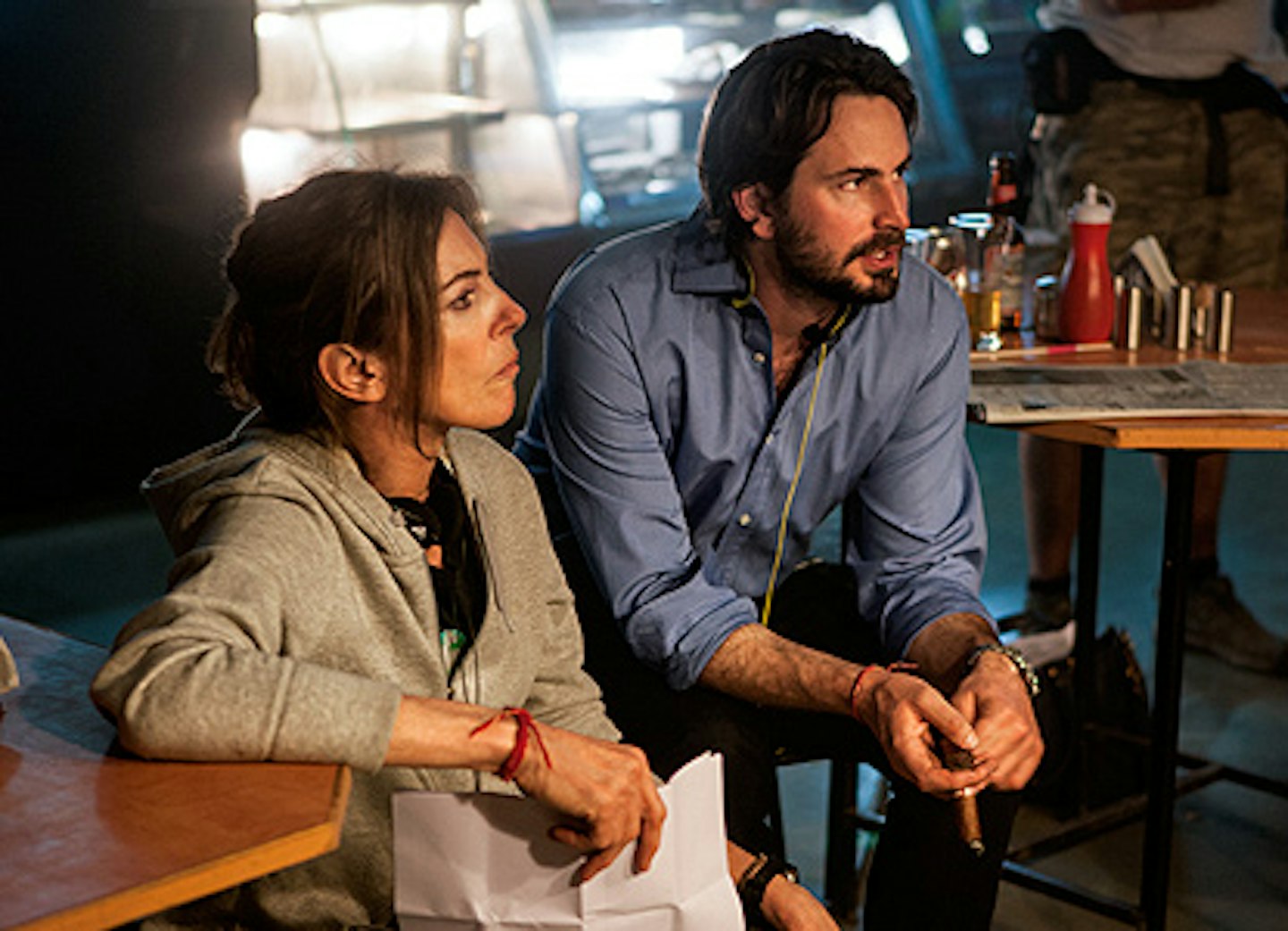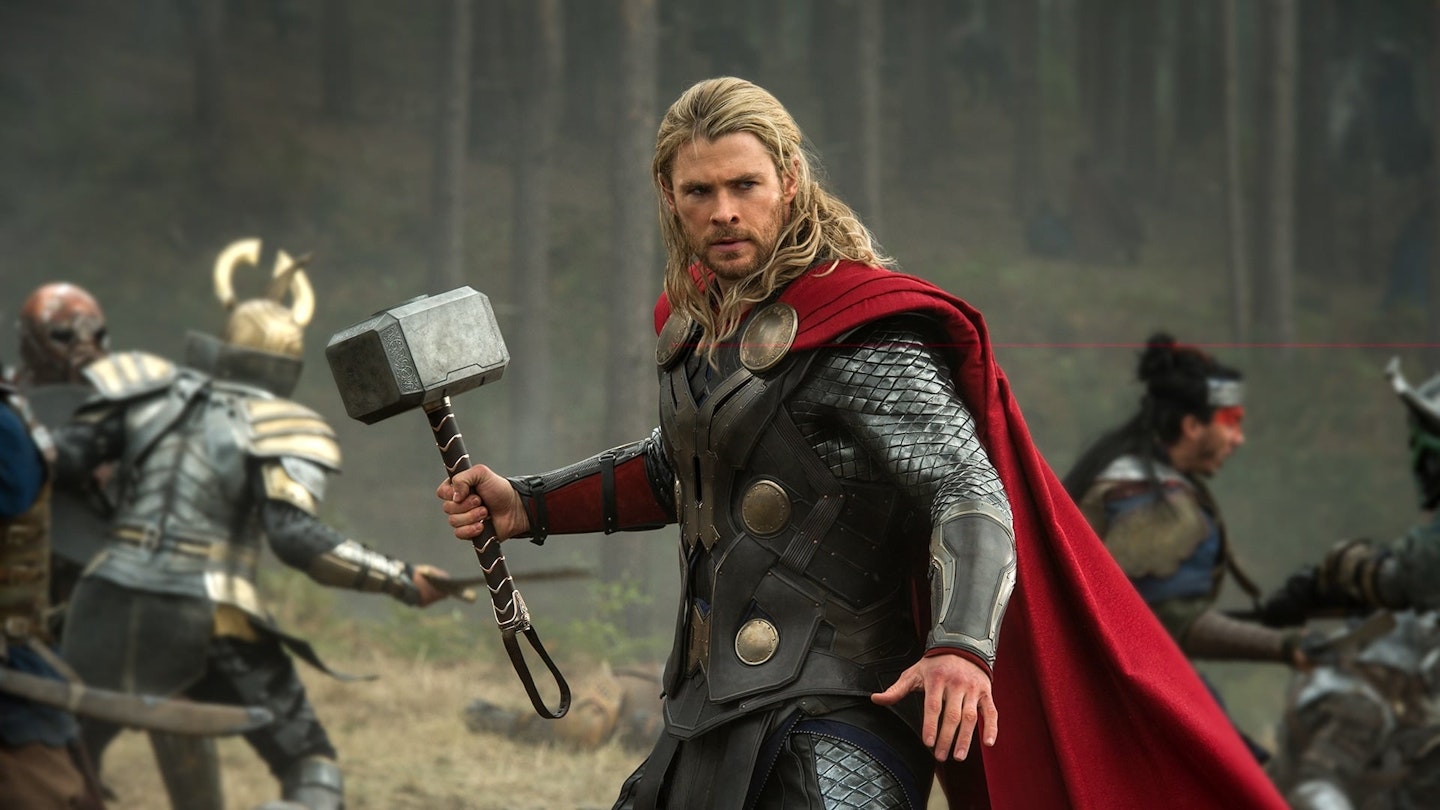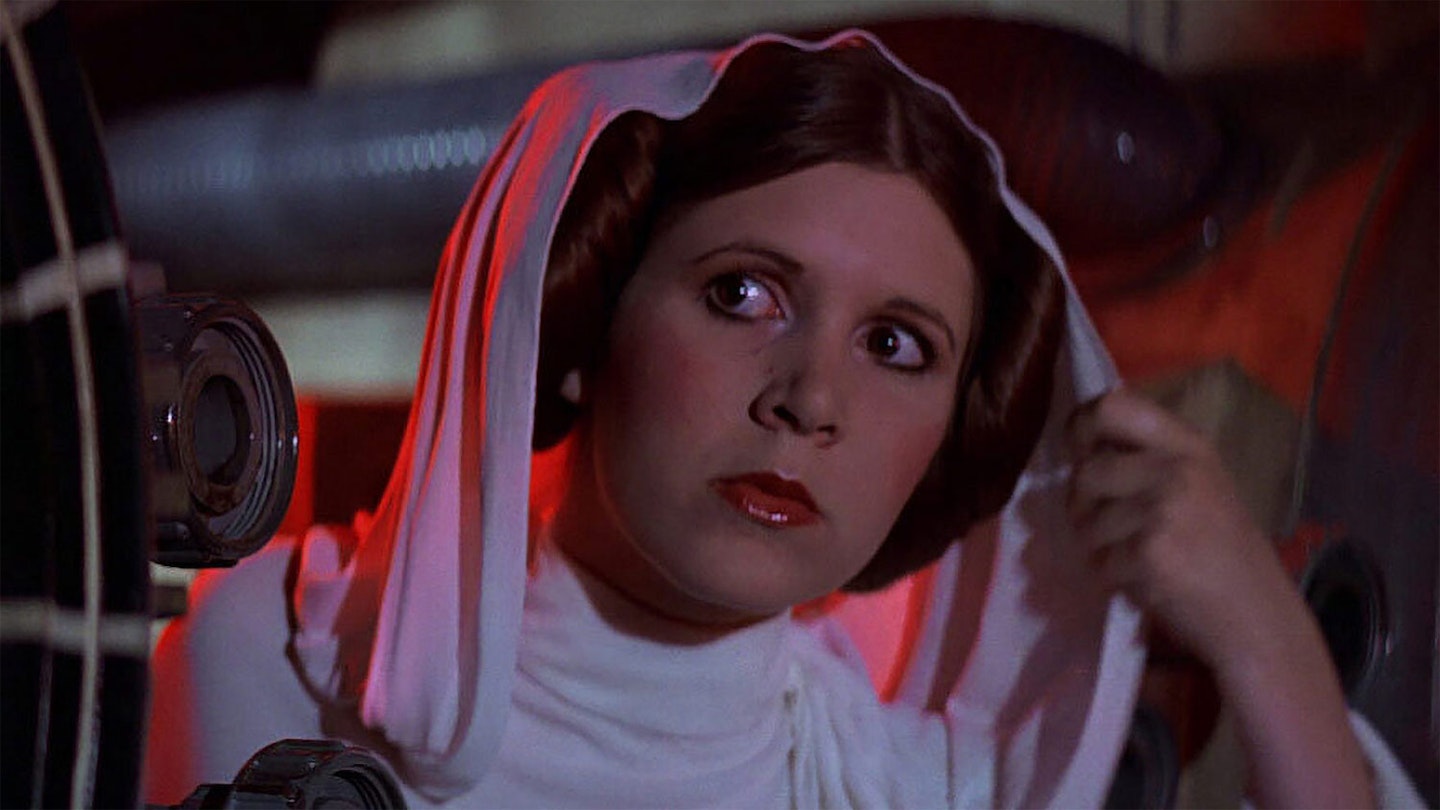There was widespread internet rejoicing when Lucasfilm handed the reins for its Star Wars spin-offs to the likes of Gareth Edwards and Rian Johnson, up-and-coming indie directors with really fascinating projects already behind them. But there were complaints from a few quarters that maybe if the Star Wars team really wanted to signal a brave new dawn, they might widen the net further and look to a few other indie filmmakers. They might, in fact, look to hire a woman.
The problem of female under-representation in Hollywood is a complicated one. There's no question that there are very few films made by women – it's hovered between five and ten per cent of studio releases for years now – but accusations tend to fly when people start to discuss the reasons why. Is sexism the sole cause? Is it simply that fewer women want to direct? And if the latter, is that down to sexism or some inherent quality of womanhood?
ONLY FOUR WOMEN HAVE EVER BEEN NOMINATED FOR BEST DIRECTOR AT THE OSCARS, AND ONLY ONE HAS ACTUALLY WON.
Some non-controversial statistics frame the discussion. In 2013, just six per cent of the top 250 films were directed by women, down three per cent from the previous year. Only four women have ever been nominated for Best Director at the Oscars, and only one has actually won (Kathryn Bigelow for The Hurt Locker in 2009). The picture is somewhat better on TV, where 23 per cent of creators are women and some – Shonda Rhimes, Lena Dunham – are acknowledged powerhouses in the industry. It's also better in indie film, with female directors contributing around 23 per cent of Sundance entries and parity achieved in the festival's dramatic competition last year, and in documentary, where women comprise 39 per cent of directors. And while movie crews are still largely male, it's worth noting that the number of women in British crews in particular are significant: 26 per cent female, compared to 22 per cent in the top Hollywood films last year. British films are about four times as likely as a top 100 US film to be directed by a woman – although that's still a tiny percentage.
So why the disparity? The claims that women simply don't want to direct don't seem to stack up; they may not comprise 50 per cent of film school graduates but they are a heck of a lot more than six per cent; Skillset put the UK figures at 34 per cent in 2010 and it hasn't been much lower than that in the last decade or so. And all those women doing great work in indie and documentary filmmaking would suggest that there is a hunger out there to make films while being female. On the other hand, despite some horrific tales of outright sexism – there are a few here that will make your hair stand up – overt discrimination cannot be at the root of all decisions, with many powerful men of Hollywood expressing a desire to get women into directing. So why aren't they succeeding in that mission?
There have been claims that films directed by women don't perform as well as those directed by men, which is and isn't true. The highest-grossing film directed by a woman is now Frozen, co-directed by Jennifer Lee, with $1.27bn, and the highest directed solely by a woman is Jennifer Yuh Nelson's Kung Fu Panda 2, at a respectable-by-any-standards $665m. But women not called 'Jennifer' and not working in animation can also produce big hits: Phyllida Lloyd's Mamma Mia! was once the highest-grossing film in British history at the national box-office and took $602m worldwide; Catherine Hardwicke's Twilight made $392m; Betty Thomas has made a career of family films like Alvin And The Chipmunks: The Squeakquel, which took $443m worldwide.
So women can make money, but it's undeniable that films directed by men currently make more money. That's because the difference comes at an earlier stage: women are generally not directing big-budget films. In a blistering blog on female directors in Hollywood written in January, Green Street's Lexi Alexander said, "There is no lack of female directors. But there is a huge lack of people willing to give female directors opportunities. Gender discrimination in Hollywood goes far beyond women simply not getting the gig. It is reflected in movie budgets, P&A budgets, the size of distribution deals (if a female director's movie is lucky enough to score one), official and unofficial internship or mentorship opportunities, union eligibility, etc."

Generally speaking, bigger budgets correlate pretty well to bigger box-office. Sure, there are breakout hits and, sure, there are high-profile flops, but it's a pretty dependable rule of thumb over a long enough time. And budget seems to be the dividing line between men and women. A female indie director with a breakout critical or commercial hit can probably expect to get her next small, personal indie film funded – eventually. A male indie director with a breakout critical or commercial hit has a fair chance at being offered a big studio film; look at Gareth Edwards or Rupert Wyatt. It takes longer for female directors to get follow-up films made, however successful their last effort, and they tend to work with smaller budgets when they do. If they have a flop, like Bigelow's K-19, it seems to take longer than similarly-placed male contemporaries to get momentum back.
THE CLAIMS THAT WOMEN SIMPLY DON'T WANT TO DIRECT DON'T SEEM TO STACK UP.
So why do men get the big ticket films? The pat answer has historically been that the big-budget films skew male in terms of audience, so that it makes sense to put a man in charge of the subject matter. Leave women to family films and rom-coms (occasionally); leave blockbusters and thrillers to manly men. Sure, Bigelow and Alexander – to name but two – would treat such sentiments with the withering scorn that they deserve, but it's a perception that endures. And any time a woman directs an action film, or thriller, or blockbuster that flops, this perception is reinforced for everyone; while it seems that every time a woman directs such a film and it succeeds, she is explained away as an exception, or someone who learned everything she knows from a man (just think how many publications covered Bigelow's Hurt Locker triumph through the prism of her long-ago marriage to James Cameron).
There's some evidence that films which make an effort to appeal to women do better at the box office so it's not as simple as matching the director to the audience. The audience is also changing: surveys have put women at over 50 per cent of cinemagoers, and even a sci-fi comic-book blockbuster like Guardians Of The Galaxy had an audience that was 44 per cent female. After the likes of Hunger Games, Gravity, Twilight, Divergent, The Fault In Our Stars and Frozen, it now feels unthinkable that any studio now would do what former Warner Bros. head Jeff Robinov apparently did and declare that his studio would no longer make films with female leads. That, astonishingly, was as recently as 2007; since then, of course, Warner Bros made the excellent and very successful Gravity. Female-led films can and do sell, internationally as well as in the US, and yet men are primarily the ones recruited to direct the female-starring hits above – even though films directed by women tend to have better roles for women which might, in turn, attract more women to theatres.
Perhaps female directors simply don't want big studio movies. Certainly for some that might be the case. Empire recently spoke to Amma Asante, director of Belle, and she said, "I can't lie; my sensibilities are the moment are probably different to the idea of that great big blockbuster, but that isn't to say there isn't one out there that would appeal to me. So often I will go to watch brilliant movies that I know I wouldn't be right to direct, because who I am as a consumer is different to who I am as a writer or director." Gillian Robespierre, director of Obvious Child, said, "I haven't been in the business long enough to really understand the intricacies of sexism and racism, both of which clearly run in the business – and in a lot of businesses – so I'm happy not to have witnessed it first-hand yet. But I also don't want to direct a Star Wars movie".
THE NUMBER OF WOMEN BEING ASKED TIRESOME QUESTIONS ABOUT WHAT IT'S LIKE BEING A POWERFUL WOMAN IN HOLLYWOOD IS GROWING, RAISING THE PROSPECT OF A GLORIOUS DAY WHERE THE QUESTION STOPS BEING ASKED.
But then again, talented male indie directors are often courted for blockbuster fare; we saw no evidence that talented female directors are being chased for these jobs in the same way. It's possible that even these sentiments of reluctance to engage in blockbuster filmmaking come down to an institutional, systemic bias. Almost by definition studios interfere more in film production than indie producers, so directors have more fighting to do to preserve their film. That studio interference comes because everyone is under pressure; those corporate bosses have to deliver successful films, and are terrified of making a career-ruining decision. Putting millions of dollars into the hands of someone bullish and self-confident, someone who positively oozes masculine authority, rarely got anyone fired. Taking a punt on a woman, however, seems like a riskier strategy because we live in a culture that still doubts women's ability to take charge.
"By letter of the law," suggests Alexander in the blog above, "all female directors must fall in one of two categories: Difficult or Indecisive. Bitch or ditz." Be as tough as the men, and you're a bitch. Try to couch your orders in softer terms to avoid offence, and you're a ditz. Directors, by very definition, have to be able and willing to take charge of their cast and crew, and to be tough enough to see their vision through to the screen. That's harder for women than men; not because women are necessarily more shy or retiring, although that can be the case for some, but also because they face more hostility when they fight their corner. The adjective "bossy" is rarely applied to men – the equivalent is probably a compliment like "powerful" or "authoritative" – but it's hurled at women as an insult. And yet it's what directors have to be.

Things, however, are changing. There have been near-misses of blockbuster status in recent years – Patty Jenkins came close to directing the Thor sequel, and Pixar had Brenda Chapman at the helm initially for Brave – and perhaps we should see both incidents as promising steps rather than simply as vast disappointments. Meanwhile, the Geena Davis Institute On Gender In Media and similar organisations are drawing attention to shocking gender imbalances in film storytelling and suggesting concrete ways to combat it. 21st Century Fox has launched a new mentoring programme to get women directing. The number of women being asked tiresome questions about what it's like being a powerful woman in Hollywood is growing, raising the prospect of a glorious day where the question stops being asked. And those growing audience numbers and huge female-led hits prove, beyond a shadow of a doubt, that women want to watch films – even big science-fiction films – as long as those films don't utterly suck.
So will a woman one day direct Star Wars? We asked around. "Sure, why not?" said Obvious Child's Jenny Slate. "No reason to say no to that one."
Asante said, "If the first Star Wars movie had been invented today, I'd be champing at the bit to direct it. But it's going to take more than an Amma Assante blockbuster film. I think you need some kind of critical mass, because one or two doesn't really make a pattern. You need three or four [women] doing it within a few years of each other, and having hits with those movies."
"Should there be another Star Wars movie?" laughs Robespierre. "That's another question." [object Object]
